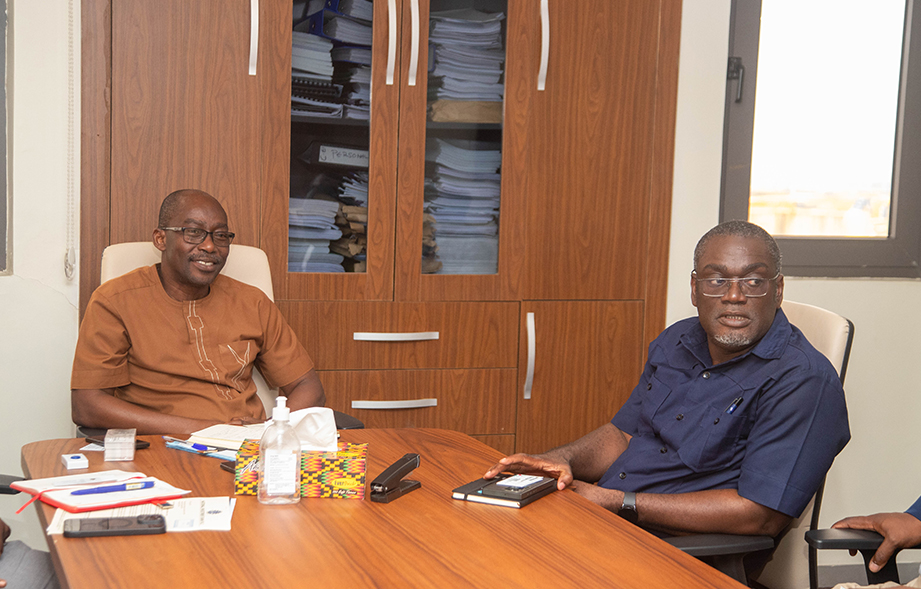
Forging Synergy: KNUST College of Engineering and GNPC Enhance Industry-Academia Collaboration
Recognizing the critical role of collaborative ecosystems in driving innovation, talent development, and sustainable growth, the College of Engineering at Kwame Nkrumah University of Technology (KNUST) and the Ghana National Petroleum Corporation (GNPC) recently engaged in a high-level strategic meeting. The productive discussions, hosted at GNPC's headquarters in Tema, involved Mr. Kwame Ntow Amoah, Acting Chief Executive Officer of GNPC, and his management team.
The discussions highlighted the College's dedication to forging deeper partnerships with stakeholders, with a clear aim: to develop highly skilled professionals ready to seamlessly transition from academia to industry, particularly in the energy sector. Critically, a shared vision emerged regarding how to best utilize the combined expertise of KNUST and GNPC to drive innovation, bolster capabilities, and ensure sustainable growth within Ghana's energy sector
Mr. Kwame Ntow Amoah articulated GNPC's strong commitment to supporting academia in nurturing future engineers, scientists, and industry leaders. He emphasized that this support extends beyond technical skills, focusing on providing practical exposure to relevant knowledge to meet the dynamic demands of the energy sector.
"At GNPC, we recognize that a successful academia-industry partnership is fundamental to national development," stated Mr. Amoah. "We are passionate about investing in initiatives that groom young talent to lead Ghana's energy future."
Professor Kwabena Biritwum Nyarko, Provost for the College of Engineering at KNUST, highlighted the necessity of aligning engineering education with real-time industry requirements, specifically in areas such as petroleum, renewable energy, and sustainability. He noted that collaboration with GNPC could facilitate joint research projects, student internships, industrial attachments, and mentorship programs, all of which would significantly enhance student learning outcomes.
"This initiative is not merely about graduating individuals with degrees; it's about developing professionals who can solve real-world problems," Professor Nyarko asserted. "Industry involvement will be pivotal to achieving this transformation."
The discussions also explored opportunities for co-designing research agendas that directly address national energy challenges, synergizing KNUST's academic expertise with GNPC's extensive field experience. Both parties acknowledged that this structured cooperation would yield tangible short-term and long-term benefits for students and the broader energy sector.
This collaboration marks a critical stride towards strengthening academia-industry relations in Ghana. It also has the potential to serve as a blueprint for future partnerships, fostering a more robust and innovative energy supply-side landscape within the nation.



